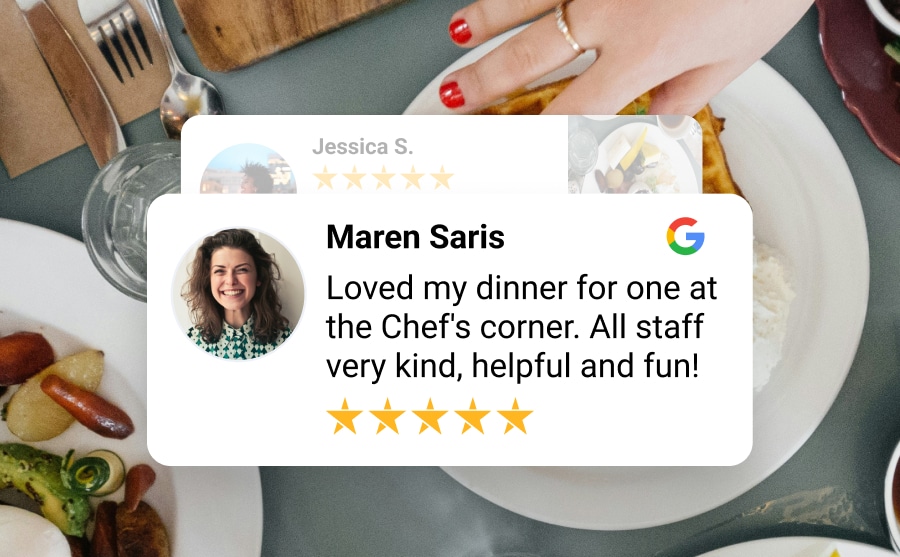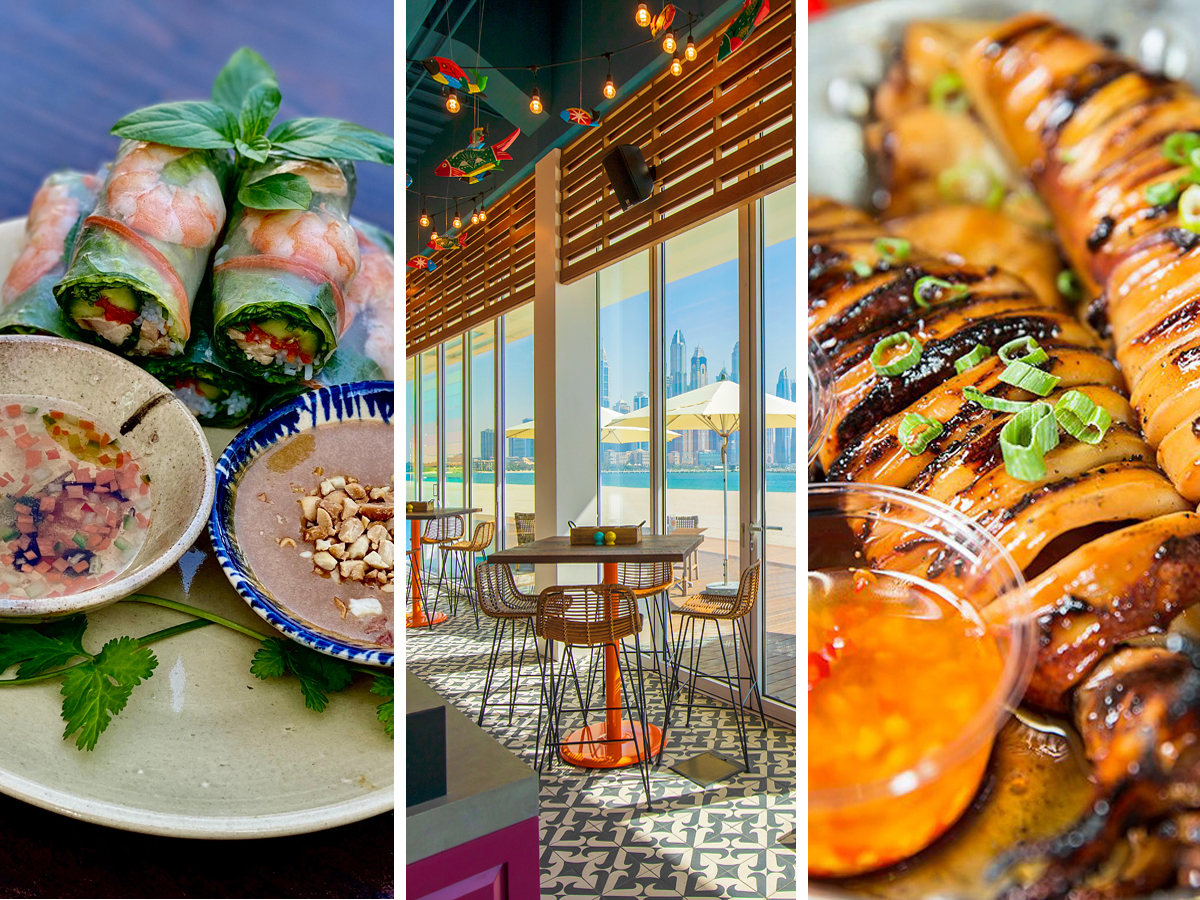Turning Customer Complaints Into Competitive Advantage

Summary
In today’s hyper-connected world, customer complaints have evolved from being reputational risks to becoming powerful sources of strategic intelligence. Nowhere is this transformation more evident than in the QSR and food & beverage industries, where real-time social feedback can make or break a brand overnight. This article explores how RILA helps organizations harness complaint data—using AI, social listening, and integrated research—to detect early warning signs, uncover innovation opportunities, and turn negative sentiment into competitive advantage. By listening deeply and responding intelligently, brands can transform frustration into loyalty, operational pain points into performance gains, and dissatisfied customers into their strongest advocates.
Introduction
Industries are undergoing a seismic shift in how they understand customers. In the QSR (Quick Service Restaurant) and food & beverage sector, this transformation is particularly evident in how brands handle customer complaints. What used to be seen purely as negative feedback is now recognized as a strategic goldmine—rich with insight that can reshape products, services, and brand positioning.
In the past, customer complaints were collected through paper surveys, phone hotlines, or occasional focus groups. These methods often captured only a fraction of real sentiment, usually long after the actual issue occurred. By the time feedback was processed, customer frustration had already spread, often resulting in lost sales and eroded trust.
Today, real-time digital platforms have changed everything. Consumers express frustration instantly—on TikTok, Instagram, review sites, forums, and brand comment sections. A single viral complaint can drive widespread conversation and influence thousands of potential customers. But those same complaints, if handled intelligently, can expose operational gaps, product flaws, or communication blind spots that competitors may still be ignoring.
RILA Global Consulting is at the forefront of this shift. By integrating social listening, consumer research, and AI-driven analytics, RILA helps QSR and food brands turn complaints from liabilities into opportunities. This approach allows organizations to respond quickly, make informed decisions, and build loyalty while competitors are still reacting to yesterday’s news.
From Traditional Research to Always-On Listening
For decades, QSR brands collected customer feedback through structured, often delayed channels. Quarterly surveys, in-store feedback forms, or occasional call center summaries shaped how organizations understood their audiences. These methods provided some insight—but not nearly fast enough to match the speed at which modern consumers communicate.
More than 80% of consumers now share their dining experiences online, often in the moment. Complaints are posted, shared, and discussed in real time. A negative experience captured in a short video can go viral in hours, affecting brand perception nationwide. Waiting for a quarterly report to surface these issues is no longer viable.
Without always-on listening, QSR brands risk:
- Missing early warning signals about systemic issues such as wait times, order accuracy, or menu availability.
- Allowing dissatisfaction to snowball into a full-blown PR or operational crisis.
- Responding too late to reverse reputational damage.
- Overlooking innovation opportunities hidden in complaint data.
- Losing competitive advantage to more agile competitors who act first.
A national chicken sandwich chain discovered rising frustration over mobile order wait times through real-time monitoring. By realigning staffing schedules and proactively communicating through its app and social channels, it improved service time metrics and boosted customer satisfaction scores in less than one month.
Why Social Listening Matters Across Industries
Social listening allows brands to capture authentic, unfiltered customer voices in real time. While this is essential in nearly every industry, it is especially powerful in food and QSR, where consumer experiences are immediate, emotional, and easily shared online.
- In QSR and food, repeated complaints about cold fries, portion sizes, or slow drive-thru service are not isolated incidents—they are early signals of systemic operational issues.
- In retail, negative reviews about shipping delays or stockouts inform smarter inventory and fulfillment strategies.
- In beverage, frustration over packaging, flavor changes, or customization limitations can reveal opportunities to innovate faster than competitors.
When a growing burger chain noticed mounting complaints about inaccurate mobile orders, they used social listening to pinpoint the specific menu items causing friction. By simplifying the digital ordering process and communicating updates to customers directly, negative mentions dropped by over 50% in one month, and repeat visits climbed steadily.
Takeaway: Customer complaints are not just noise—they are a real-time blueprint of what matters most to your customers. Brands that listen and act early can turn potential crises into lasting loyalty.
The Role of Market Research + Social Data
Traditional market research provides structured insights—customer satisfaction scores, NPS results, demographic patterns. Social listening adds a layer of immediacy and authenticity. When used together, they provide a 360-degree understanding of what’s driving customer dissatisfaction and how to address it effectively.
RILA Global Consulting helps QSR and food brands merge these approaches to:
- Detect complaint trends early—before they dominate public discourse.
- Identify regional and demographic variations in customer frustrations.
- Track changes in sentiment during product rollouts, promotions, or menu updates.
- Uncover hidden expectations that standard surveys often miss.
- Map the customer journey from frustration to resolution and loyalty.
A beverage chain noticed persistent negative chatter around customization failures in their mobile app. Traditional surveys showed declining satisfaction, but real-time listening revealed customers were confused about the ordering interface, not the product. A user experience redesign eliminated the issue and resulted in a surge in completed orders and positive sentiment.
RILA in Action: Turning Signals into Strategy
A TikTok video featuring a customer frustration about inconsistent portion sizes at a national QSR chain rapidly gained traction, reaching thousands of viewers and sparking wider online discussions. This kind of moment can become a reputational crisis—or a strategic opportunity—depending on how brands respond.
Using its proprietary RILA CORE framework, RILA Global Consulting guided the brand through a structured response:
1. Detect – Monitor volume, velocity, and sentiment around the issue in real time, identifying which regions and menu items were being discussed most.
2. Synthesize – Segment feedback to uncover the operational bottlenecks behind the complaints, including inconsistent preparation standards across certain locations.
3. Activate– Deploy a multi-layered action plan:
- Operational retraining in underperforming regions.
- Transparent, proactive communication on owned digital channels.
- Mobile app push notifications informing customers about steps being taken.
- Strategic promotional offers to encourage customers to return.
By acting quickly, the brand flipped the narrative. Social sentiment turned positive, customer trust was rebuilt, and foot traffic grew in regions that had previously seen the highest complaint volumes. Instead of a PR crisis, the situation became a loyalty moment.
What This Means for Organizations
QSR and food brands that embrace complaint-driven insights gain a measurable competitive advantage. Complaints offer unfiltered insight into what’s broken, what customers expect, and where brands can outperform competitors. Those who act first don’t just solve problems—they win loyalty.
- Proactive strategy — Identify and address issues before they escalate.
- Early detection — Prevent small operational gaps from becoming costly crises.
- Tailored responses — Fix what matters most to customers in real time.
- Competitive differentiation — Stand out by responding faster and smarter.
- Stronger ROI — Convert detractors into repeat customers and advocates.
A fast-casual chain leveraged complaint analysis to resolve frequent delays in online orders. By investing in backend kitchen workflow optimization and proactively communicating these improvements, the brand reduced complaint volume by 45% and grew digital order satisfaction scores significantly in one quarter.
About RILA Global Consulting
At RILA Global Consulting, we combine cutting-edge social listening, consumer research, and AI-driven analytics to decode what customers are saying—and not saying—about QSR and food brands. With a global footprint and deep expertise across food, beverage, and retail, we provide the intelligence companies need to anticipate issues, refine strategies, and turn customer complaints into a strategic advantage.
We’ve helped Fortune 500 brands, QSR chains, and emerging restaurant innovators transform negative feedback into measurable business growth. Whether you need to track complaint trends in real time, benchmark against competitors, or design research-backed response strategies, RILA is your partner for turning insight into impact.
👉 Ready to turn complaints into your competitive edge?
Contact us RILA Global Consulting to start driving results today.
Read More

Top U.S. Consumer Concerns — Last 30 Days (RILA Global Consulting Analysis)
Over the past month, American consumers have been caught between economic pressure and cautious hope. According to RILA’s analysis of 25 million online conversations, tariffs and inflation dominate public discourse — shaping a sense of financial vulnerability that spans demographics and languages. English-speaking Americans decry tariffs as a hidden tax, while Spanish-speaking communities focus on agricultural fallout and global trade risks. Inflation’s reach now extends beyond groceries to healthcare, deepening distrust in political leadership. Meanwhile, AI-driven automation fuels job insecurity, especially among younger generations who see innovation as both opportunity and threat. Yet, amid the strain, moments of optimism — from EV purchases to financial literacy — suggest that while Americans feel squeezed, they’re still seeking control and clarity in a shifting economic landscape.
October 22, 2025
READ MORE

Why Social Listening is Critical for Nuclear Energy Discussions
Nuclear energy remains one of the most emotionally charged and technically complex sectors in the global energy debate, where public perception often outweighs scientific facts. This article explores how social listening has become essential for industry leaders, policymakers, and energy organizations to understand real-time public sentiment, track misinformation, and engage communities proactively. Unlike traditional research, which captures static snapshots of opinion, social listening uncovers nuanced, rapidly evolving conversations across social media and forums, allowing stakeholders to detect concerns early, address fears around safety and waste, and craft targeted, empathetic communication strategies. By integrating these insights with market research, nuclear energy organizations can foster trust, shape narratives responsibly, and position themselves strategically in the transition to net-zero emissions.
October 22, 2025
READ MORE

Why Hospitality Brands Can’t Ignore TikTok Travel Trends
TikTok has transformed the way travelers discover and choose destinations, turning viral videos into powerful drivers of bookings and brand visibility. For hospitality brands, from luxury resorts to boutique hotels, ignoring TikTok trends is no longer an option — these platforms provide real-time signals of traveler interests, desires, and frustrations. By combining social listening with traditional market research, brands can anticipate emerging trends, tailor content to viral hashtags, and convert engagement into bookings. RILA specializes in turning TikTok insights into actionable strategies, helping hotels and travel brands bridge the gap between online virality and real-world revenue while staying ahead of the competition in a rapidly evolving digital landscape.
October 22, 2025
READ MORE

What Social Listening Reveals About Inflation’s Impact on Dining Choices
Inflation is reshaping not just what consumers eat, but how they decide where and how much to spend—conversations that are happening in real time on social media. Traditional research methods can lag behind these rapid behavior shifts, but social listening combined with AI-driven analytics provides QSR and food brands with an immediate window into consumer priorities, price sensitivity, and value perceptions. From spotting early complaints about portion sizes to identifying the most effective promotions, brands that act on these digital signals can proactively adjust pricing, loyalty programs, and messaging to maintain loyalty and competitive advantage. By treating inflation as a strategic moment rather than a challenge, companies can turn economic pressure into actionable intelligence, protecting both margins and customer relationships.
October 22, 2025
READ MORE

What Reddit and TripAdvisor Teach Us About Hospitality Pain Points
In today’s digital age, guest experiences extend far beyond hotel walls, unfolding in real time on platforms like Reddit and TripAdvisor. These forums offer unfiltered, authentic insights into travelers’ frustrations, praises, and unmet expectations, revealing pain points that traditional surveys often miss. By combining always-on social listening with structured market research, hospitality brands can detect service gaps as they emerge, understand the emotional drivers behind complaints, and implement targeted solutions that improve satisfaction and loyalty. RILA specializes in transforming these digital conversations into actionable strategies, helping hotels, resorts, and boutique properties proactively enhance operations, protect brand reputation, and turn guest feedback into a competitive advantage.
October 22, 2025
READ MORE

What Consumers Really Want From Healthy Fast Food Options
As consumer expectations evolve, fast food is no longer just about speed and price—health, transparency, and personalization now dominate decision-making. This article explores how traditional research methods are being outpaced by real-time digital conversations on social media, food apps, and review platforms, revealing authentic insights into dietary trends, affordability, flavor preferences, and sustainability demands. By combining AI-driven social listening with structured market research, fast food brands can detect emerging trends, tailor menus, and anticipate shifts before competitors, turning data into actionable strategies that drive loyalty, innovation, and growth.
October 22, 2025
READ MORE

What Consumers Really Think About Renewable Energy Adoption
As renewable energy technologies surge forward, understanding consumer sentiment has become just as crucial as technological innovation. Modern energy adoption is no longer a top-down process—consumers actively debate, question, and influence the trajectory of solar, wind, and EV infrastructure through online platforms and social discourse. By combining traditional market research with real-time social listening, energy providers can uncover both the emotional drivers and practical concerns shaping adoption, from cost and reliability to environmental impact and community trust. Insights like these allow organizations to craft targeted strategies, foster transparency, and ultimately accelerate the transition to a more sustainable energy future—demonstrating that successful adoption depends as much on listening as it does on leading.
October 22, 2025
READ MORE

Turning Sustainability Commitments Into Consumer Confidence
In today’s energy landscape, bold sustainability promises are no longer enough—consumers demand proof, transparency, and tangible results. Energy companies must move beyond announcements and actively demonstrate progress through measurable actions, verified data, and authentic community engagement. By leveraging social listening and clear storytelling, brands can identify concerns, address skepticism, and transform it into trust and advocacy. Embedding sustainability into the core of operations and communications turns commitments into credibility, driving consumer confidence, brand loyalty, and long-term competitive advantage in an era where trust is the ultimate currency.
October 22, 2025
READ MORE

Turning Negative Reviews Into Competitive Advantage in Travel & Hospitality
In an age where a single online review can influence thousands of potential guests, the hospitality industry faces both its greatest challenge and most valuable opportunity: social listening. This article explores how RILA helps hotels and travel brands transform negative reviews from reputation risks into strategic assets. By combining social listening, market research, and AI analytics, businesses can decode real-time guest sentiment, uncover hidden service gaps, and respond before issues escalate. The result isn’t just damage control — it’s a proactive, data-driven approach that turns criticism into competitive intelligence, driving loyalty, trust, and long-term growth in an increasingly transparent marketplace.
October 22, 2025
READ MORE